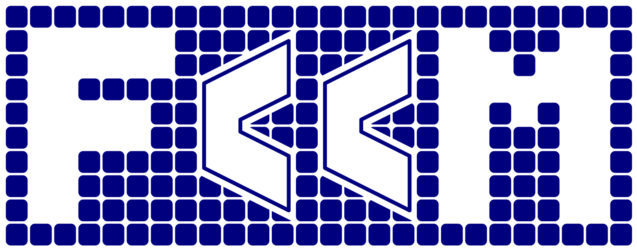FCCM Ph.D. Forum 2023
For the first time in its two decades of history, the International Symposium On Field-Programmable Custom Computing Machines (FCCM) is going to host a Ph.D. Forum for the graduate students working toward their Ph.D. to present and discuss their dissertation research with broadly defined communities related to computing that exploit the unique features and capabilities of FPGAs and other reconfigurable hardware. The forum will offer graduate students an opportunity to present their ongoing dissertation research to the entire FCCM conference audience, discuss with experts in academia and industry, and make useful contacts regarding future career opportunities in an informal setting. The goal of the FCCM Ph.D. Forum is to provide a comprehensive venue for students to better prepare for their research and career in the reconfigurable computing domain and cross-pollinate ideas with their peers from compiler architecture, algorithms, and programming languages – all while enjoying the FCCM conference and many associated workshops, tutorials, and demo night.
The Ph.D. Forum will culminate with a poster presentation session, where the participating students will have the opportunity to practice what they learned and disseminate their work to the broader FCCM community. The Forum will be scheduled so that the participating students can follow all the main scientific and social events of the conference, and it is open to all students, including the authors of papers presented at the conference.
FCCM 2023 Ph.D. Forum – Call for Abstract
Student applicants must be enrolled in a Ph.D. program at the time of submission and each submission is to be backed by endorsement from their Ph.D. advisor. Masters students en route to the Ph.D. program may apply, however, they should be the same standards as the other applicants.
Poster Proposal Text
- The Author’s and Advisor’s Name, Affiliation, and email address.
- Category (Ph.D. or Master).
- Research Title and an Extended Abstract (a maximum of 2 pages or 900 words in IEEETran, 10 pt, 2-column conference format, Overleaf Template) containing the following sections:
- Problem and Motivation: This section should clearly state the problem being addressed and explain the reasons for seeking a solution to this problem.
- Background and Related Work: This section should describe the specialized (but pertinent) background necessary to appreciate the work. Include references to the literature where appropriate, and briefly explain where your work departs from that done by others. Reference lists do not count towards the limit on the length of the abstract.
- Approach and Uniqueness: This section should describe your approach to attacking the problem and should clearly state how your approach is novel.
- Results and Contributions: This section should clearly show how the results of your work contribute to computer science and should explain the significance of those results. Include a separate paragraph (maximum of 100 words) for possible publication in the conference proceedings that serves as a succinct description of the project.
- The reference page is excluded from the 2-page content limit.
Topics of Interest
-
Architectures, Hardware, and Systems
- Novel reconfigurable architectures, including overlay architectures and coarse-grained architectures
- Architectures for high-performance and/or low-power computing
- Security assessment and enhancements for reconfigurable computing
- Specialized memory systems including volatile, non-volatile, and hybrid memory subsystems
- Emerging technologies with in-field reconfiguration abilities
- Clusters, data centers, or large systems of reconfigurable devices
- Heterogeneous programmable architectures
- Run-time management of reconfigurable hardware
- System resilience/fault tolerance for reconfigurable hardware
- Evolvable, adaptable, or autonomous reconfigurable computing systems
- Security assessment and enhancement of run-time reconfiguration
- Abstractions, Programming Models, and Tools
-
Abstractions, programming models, interfaces, and runtimes, including virtualization
- New languages and design frameworks for spatial or heterogeneous applications
- High-level synthesis and designer productivity in general
- Software-defined systems (e.g. radio, networks, frameworks for new domains)
- Customizable soft-processor systems
-
Algorithms and Applications
- Computational models and parallel algorithms
- Performance modeling
- FPGAs at the edge
- Domain-specific architectures and overlays
- Datacenter or cluster with reconfigurable applications
- New uses of run-time reconfiguration in applications-specific systems
- Applications that utilize reconfigurable technology for performance and efficiency, and particularly submissions that make comparisons with other highly parallel architectures such as GPUs or DSPs
- Applications that demonstrate the benefits of customized computing machines
- Tools and methods for automatically generating application-specific computing machines
- Novel use of state-of-the-art commercial FPGAs
Submit Your Abstract
- Submission Deadline: April 4, 2023, 11:59 pm AoE
- Accept/Reject Notification: April 16, 2023
- Final Camera Ready Abstract Due: April 20, 2023
- Presentation Session in FCCM: TBD
Please submit your extended abstract for FCCM 2023 Ph.D. Forum via email. Email your submission to phdforum@fccm.org.
Email Subject: [Student_Name] — [Category (Ph.D. or MS)]
Mail Body:
- Name of the Student:
- Department:
- University:
- Advisor’s Name:
- University Email ID:
- Short summary of the abstract (no more than 50 words):
PDF Attachment Names:
- Abstract: <student_name>.pdf (Only PDF will be accepted for review)
- Advisor’s Letter: <student_name>_advisor_letter.pdf (Only PDF will be accepted for review)
Advisor Statement of Support:
On institution letterhead, the letter should certify the following.
- Verify the applicant is a full-time student in the respective university and enrolled in the Ph.D. program.
- Confirm the support for the applicant’s participation.
- State the length of time the student has been under the supervision of the advisor writing the letter of recommendation.
- Advisor should email the letter as a PDF attachment to phdforum@fccm.org and have FCCM Ph.D. Forum – <Full Student Name> as the email subject. The letter of recommendation should be emailed by the abstract submission deadline.
Any questions regarding the Ph.D. forum and the associated logistics should be sent to phdforum@fccm.org and have FCCM 2023 Ph.D. Forum Question as the email subject.
FCCM 2023 Ph.D. Forum Chair
Debjit Pal, University of Illinois Chicago (dpal2@uic.edu)
